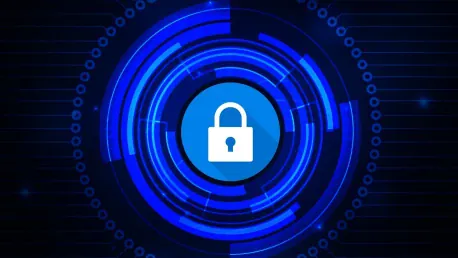In a world increasingly driven by technology, cybersecurity has emerged as a cornerstone of national security, a sentiment echoed by Union Home Minister Amit Shah during the foundation day celebrations of the Indian Cyber Crime Coordination Centre (I4C). Shah stressed that the integration of cybersecurity into national security frameworks is not only essential but urgent, given the pervasive nature of technology in today’s initiatives. The wide-scale adoption of digital methods for economic, social, and governance activities has significantly elevated the potential for security threats, necessitating robust cybersecurity measures intertwined with the country’s developmental strategy.
The Ministry of Home Affairs established the I4C in 2018 to create a coordinated national response to cybercrime. During the event, Shah also introduced four critical platforms under the I4C framework: the Suspect Registry, the Cyber Fraud Mitigation Centre (CFMC), the Samanvaya platform, and the Cyber Commandos program. These platforms aim to fortify India’s cybersecurity defenses on multiple fronts. For instance, the CFMC focuses on identifying and curbing cyber fraud, highlighting the nuanced approach required to tackle different kinds of cyber threats. On a broader level, these measures form part of a comprehensive plan to enhance the nation’s cybersecurity infrastructure significantly.
Strategic Platforms and Cyber Initiatives
The Suspect Registry is one of the novel initiatives inaugurated by Shah, which will maintain a comprehensive list of repeat offenders. This centralized registry is accessible to both police and banking personnel, aiding in the prevention of fraud by providing a valuable reference to identify potential threats. This measure aims to overcome jurisdictional limitations, ensuring a more cohesive and effective effort in tackling cybercrime across the nation. The registry also represents a significant step towards a proactive rather than reactive response to cyber threats, as it will enable authorities to predict and preempt potential fraudulent activities more efficiently.
The Cyber Fraud Mitigation Centre (CFMC) is designed to act as a bulwark against cyber fraud. This initiative demonstrates the government’s commitment to protecting its citizens from the financial devastations stemming from online scams and fraudulent schemes. With the rapid increase in digital transactions, the CFMC’s role is crucial in offering a shield against the rising tide of cyber fraud. Simultaneously, the Samanvaya platform aims to coordinate cybersecurity efforts and policies across various governmental departments, creating a unified front against cyber threats and ensuring that cybersecurity measures are uniformly stringent across the board.
The Role of Cyber Commandos and Digital Proliferation
Another cornerstone of the initiative is the Cyber Commandos program, which aims to train and equip 5,000 cyber commandos over the next five years. This program is designed to develop a specialized and skilled task force adept at countering sophisticated cyber threats. The demand for such expertise is underscored by the exponential surge in internet usage in India, from 250 million users in 2014 to a projected 950 million by 2024, driven by the Digital India initiative. The Cyber Commandos program represents a strategic move to arm the nation’s cybersecurity infrastructure with expert personnel capable of navigating the complexities of modern cyber threats.
Adding to this digital proliferation, India now boasts 350 million Jan Dhan accounts and 360 million Rupay debit cards. Such a dramatic increase in online financial activities has positioned India as a leading nation in digital transactions, accounting for 46% of the world’s digital transaction volume. This rapid growth necessitates robust cybersecurity measures to protect against increasing digital fraud risks. The Cyber Commandos are expected to play a pivotal role in securing this digital landscape, ensuring that the benefits of digital proliferation are not marred by the threats of cybercrime.
National Security and Economic Progress
In a rapidly advancing technological world, cybersecurity has become vital to national security. This was affirmed by Union Home Minister Amit Shah during the foundation day of the Indian Cyber Crime Coordination Centre (I4C). Shah highlighted the urgent need to integrate cybersecurity into national security strategies due to technology’s pervasive influence on today’s initiatives. With digital methods now integral to economic, social, and governance activities, the threat landscape has drastically expanded, making robust cybersecurity measures crucial to the nation’s growth and safety.
The Ministry of Home Affairs launched I4C in 2018 to foster a coordinated national response to cybercrime. Shah introduced four key platforms under I4C’s framework: the Suspect Registry, the Cyber Fraud Mitigation Centre (CFMC), the Samanvaya platform, and the Cyber Commandos program. These initiatives are designed to strengthen India’s cybersecurity on multiple levels. For example, the CFMC is dedicated to identifying and countering cyber fraud, illustrating the specialized strategies needed to combat various cyber threats. Collectively, these platforms represent a comprehensive effort to bolster the nation’s cybersecurity infrastructure.









